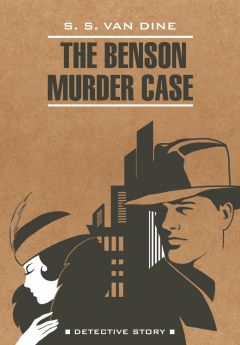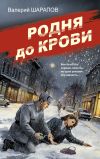
Автор книги: Стивен Ван Дайн
Жанр: Иностранные языки, Наука и Образование
Возрастные ограничения: +16
сообщить о неприемлемом содержимом
Текущая страница: 9 (всего у книги 18 страниц)
Chapter XII. The Owner of a Colt-.45
(Monday, June 17; forenoon)
Though Vance and I arrived at the District Attorney’s office the following morning a little after nine, the Captain had been waiting twenty minutes; and Markham directed Swacker to send him in at once.
Captain Philip Leacock was a typical army officer, very tall—fully six feet, two inches,—clean-shaven, straight and slender. His face was grave and immobile; and he stood before the District Attorney in the erect, earnest attitude of a soldier awaiting orders from his superior officer.
“Take a seat, Captain,” said Markham, with a formal bow. “I have asked you here, as you probably know, to put a few questions to you concerning Mr. Alvin Benson. There are several points regarding your relationship with him, which I want you to explain.”
“Am I suspected of complicity in the crime?” Leacock spoke with a slight Southern accent.
“That remains to be seen,” Markham told him coldly. “It is to determine that point that I wish to question you.”
The other sat rigidly in his chair and waited.
Markham fixed him with a direct gaze.
“You recently made a threat on Mr. Alvin Benson’s life, I believe.”
Leacock started, and his fingers tightened over his knees. But before he could answer, Markham continued:
“I can tell you the occasion on which the threat was made,—it was at a party given by Mr. Leander Pfyfe.”
Leacock hesitated; then thrust forward his jaw.
“Very well, sir; I admit I made the threat. Benson was a cad—he deserved shooting. … That night he had become more obnoxious than usual. He’d been drinking too much—and so had I, I reckon.”
He gave a twisted smile, and looked nervously past the District Attorney out of the window.
“But I didn’t shoot him, sir. I didn’t even know he’d been shot until I read the paper next day.”
“He was shot with an army Colt—the kind you fellows carried in the war,” said Markham, keeping his eyes on the man.
“I know it,” Leacock replied. “The papers said so.”
“You have such a gun, haven’t you, Captain?”
Again the other hesitated.
“No, sir.” His voice was barely audible.
“What became of it?”
The man glanced at Markham, and then quickly shifted his eyes.
“I—I lost it … in France.”
Markham smiled faintly.
“Then how do you account for the fact that Mr. Pfyfe saw the gun the night you made the threat?”
“Saw the gun?” He looked blankly at the District Attorney.
“Yes, saw it, and recognized it as an army gun,” persisted Markham, in a level voice. “Also, Major Benson saw you make a motion as if to draw a gun.”
Leacock drew a deep breath, and set his mouth doggedly.
“I tell you, sir, I haven’t a gun. … I lost it in France.”
“Perhaps you didn’t lose it, Captain. Perhaps you lent it to someone.”
“I didn’t, sir!” the words burst from his lips.
“Think a minute, Captain. … Didn’t you lend it to someone?”
“No—I did not!”
“You paid a visit—yesterday—to Riverside Drive. … Perhaps you took it there with you.”
Vance had been listening closely.
“Oh—deuced clever!” he now murmured in my ear.
Captain Leacock moved uneasily. His face, even with its deep coat of tan, seemed to pale, and he sought to avoid the implacable gaze of his questioner by concentrating his attention upon some object on the table. When he spoke his voice, heretofore truculent, was colored by anxiety.
“I didn’t have it with me. … And I didn’t lend it to anyone.”
Markham sat leaning forward over the desk, his chin on his hand, like a minatory graven image.
“It may be you lent it to someone prior to that morning.”
“Prior to …?” Leacock looked up quickly and paused, as if analyzing the other’s remark.
Markham took advantage of his perplexity.
“Have you lent your gun to anyone since you returned from France?”
“No, I’ve never lent it—” he began, but suddenly halted and flushed. Then he added hastily. “How could I lend it? I just told you, sir—”
“Never mind that!” Markham cut in. “So you had a gun, did you, Captain? … Have you still got it?”
Leacock opened his lips to speak, but closed them again tightly.
Markham relaxed, and leaned back in his chair.
“You were aware, of course, that Benson had been annoying Miss St. Clair with his attentions?”
At the mention of the girl’s name the Captain’s body became rigid; his face turned a dull red, and he glared menacingly at the District Attorney. At the end of a slow, deep inhalation he spoke through clenched teeth.
“Suppose we leave Miss St. Clair out of this.” He looked as though he might spring at Markham.
“Unfortunately, we can’t.” Markham’s words were sympathetic but firm. “Too many facts connect her with the case. Her hand-bag, for instance, was found in Benson’s living-room the morning after the murder.”
“That’s a lie, sir!”
Markham ignored the insult.
“Miss St. Clair herself admits the circumstance.” He held up his hand, as the other was about to answer. “Don’t misinterpret my mentioning the fact. I am not accusing Miss St. Clair of having anything to do with the affair. I’m merely endeavoring to get some light on your own connection with it.”
The Captain studied Markham with an expression that clearly indicated he doubted these assurances. Finally he set his mouth, and announced with determination:
“I haven’t anything more to say on the subject, sir.”
“You knew, didn’t you,” continued Markham, “that Miss St. Clair dined with Benson at the Marseilles on the night he was shot?”
“What of it?” retorted Leacock sullenly.
“And you knew, didn’t you, that they left the restaurant at midnight, and that Miss St. Clair did not reach home until after one?”
A strange look came into the man’s eyes. The ligaments of his neck tightened, and he took a deep, resolute breath. But he neither glanced at the District Attorney nor spoke.
“You know, of course,” pursued Markham’s monotonous voice, “that Benson was shot at half past twelve?”
He waited; and for a whole minute there was silence in the room.
“You have nothing more to say, Captain?” he asked at length; “—no further explanations to give me?”
Leacock did not answer. He sat gazing imperturbably ahead of him; and it was evident he had sealed his lips for the time being.
Markham rose.
“In that case, let us consider the interview at an end.”
The moment Captain Leacock had gone, Markham rang for one of his clerks.
“Tell Ben to have that man followed. Find out where he goes and what he does. I want a report at the Stuyvesant Club to-night.”
When we were alone Vance gave Markham a look of half-bantering admiration.
“Ingenious—not to say artful. … But, y’ know, your questions about the lady were shocking bad form.”
“No doubt,” Markham agreed. “But it looks now as if we were on the right track. Leacock didn’t create an impression of unassailable innocence.”
“Didn’t he?” asked Vance. “Just what were the signs of his assailable guilt?”
“You saw him turn white when I questioned him about the weapon. His nerves were on edge,—he was genuinely frightened.”
Vance sighed.
“What a perfect ready-made set of notions you have, Markham! Don’t you know that an innocent man, when he comes under suspicion, is apt to be more nervous than a guilty one, who, to begin with, had enough nerve to commit the crime, and, secondly, realizes that any show of nervousness is regarded as guilt by you lawyer chaps? ‘My strength is as the strength of ten because my heart is pure’ is a mere Sunday-school pleasantry. Touch almost any innocent man on the shoulder and say ‘You’re arrested’, and his pupils will dilate, he’ll break out in a cold sweat, the blood will rush from his face, and he’ll have tremors and dyspnoea. If he’s a hystérique[90]90
hystérique (фр.) —истерический
[Закрыть], or a cardiac neurotic, he’ll probably collapse completely. It’s the guilty person who, when thus accosted, lifts his eyebrows in bored surprise and says, ‘You don’t mean it, really,—here have a cigar’.”
“The hardened criminal may act as you say,” Markham conceded; “but an honest man who’s innocent doesn’t go to pieces, even when accused.”
Vance shook his head hopelessly.
“My dear fellow, Crile and Voronoff might have lived in vain for all of you. Manifestations of fear are the result of glandular secretions—nothing more. All they prove is that the person’s thyroid is undeveloped or that his adrenals are subnormal. A man accused of a crime, or shown the bloody weapon with which it was committed, will either smile serenely, or scream, or have hysterics, or faint, or appear disint’rested—according to his hormones, and irrespective of his guilt. Your theory, d’ ye see, would be quite all right if everyone had the same amount of the various internal secretions. But they haven’t. … Really, y’ know, you shouldn’t send a man to the electric chair simply because he’s deficient in endocrines. It isn’t cricket.”
Before Markham could reply Swacker appeared at the door and said Heath had arrived.
The Sergeant, beaming with satisfaction, fairly burst into the room. For once he forgot to shake hands.
“Well, it looks like we’d got hold of something workable. I went to this Captain Leacock’s apartment-house last night, and here’s the straight of it:—Leacock was at home the night of the thirteenth all right; but shortly after midnight he went out, headed west—get that!—and he didn’t return till about quarter of one!”
“What about the hall-boy’s original story?” asked Markham.
“That’s the best part of it. Leacock had the boy fixed. Gave him money to swear he hadn’t left the house that night.—What do you think of that, Mr. Markham? Pretty crude—huh? … The kid loosened up when I told him I was thinking of sending him up the river for doing the job himself.” Heath laughed unpleasantly. “And he won’t spill anything to Leacock, either.”
Markham nodded his head slowly.
“What you tell me, Sergeant, bears out certain conclusions I arrived at when I talked to Captain Leacock this morning. Ben put a man on him when he left here, and I’m to get a report to-night. To-morrow may see this thing through. I’ll get in touch with you in the morning, and if anything’s to be done, you understand, you’ll have the handling of it.”
When Heath had left us, Markham folded his hands behind his head and leaned back contentedly.
“I think I’ve got the answer,” he said. “The girl dined with Benson and returned to his house afterward. The Captain, suspecting the fact, went out, found her there, and shot Benson. That would account not only for her gloves and hand-bag, but for the hour it took her to go from the Marseilles to her home. It would also account for her attitude here Saturday, and for the Captain’s lying about the gun. … There, I believe, I have my case. The smashing of the Captain’s alibi about clinches it.”
“Oh, quite,” said Vance airily. “‘Hope springs exulting on triumphant wing’.”
Markham regarded him a moment.
“Have you entirely forsworn human reason as a means of reaching a decision? Here we have an admitted threat, a motive, the time, the place, the opportunity, the conduct, and the criminal agent.”
“Those words sound strangely familiar,” smiled Vance. “Didn’t most of ’em fit the young lady also? … And you really haven’t got the criminal agent, y’ know. But it’s no doubt floating about the city somewhere.—A mere detail, however.”
“I may not have it in my hand,” Markham countered. “But with a good man on watch every minute, Leacock won’t find much opportunity of disposing of the weapon.”
Vance shrugged indifferently.
“In any event, go easy,” he admonished. “My humble opinion is that you’ve merely unearthed a conspiracy.”
“Conspiracy? … Good Lord! What kind?”
“A conspiracy of circumst’nces, don’t y’ know.”
“I’m glad, at any rate, it hasn’t to do with international politics,” returned Markham good-naturedly.
He glanced at the clock.
“You won’t mind if I get to work? I’ve a dozen things to attend to, and a couple of committees to see. … Why don’t you go across the hall and have a talk with Ben Hanlon, and then come back at twelve-thirty? We’ll have lunch together at the Bankers’ Club. Ben’s our greatest expert on foreign extradition, and has spent most of his life chasing about the world after fugitives from justice. He’ll spin you some good yarns.”
“How perfectly fascinatin’!” exclaimed Vance, with a yawn.
But instead of taking the suggestion, he walked to the window and lit a cigarette. He stood for a while puffing at it, rolling it between his fingers, and inspecting it critically.
“Y’ know, Markham,” he observed, “everything’s going to pot these days. It’s this silly democracy. Even the nobility is degen’rating. These Régie cigarettes, now: they’ve fallen off frightfully. There was a time when no self-respecting potentate would have smoked such inferior tobacco.”
Markham smiled.
“What’s the favor you want to ask?”
“Favor? What has that to do with the decay of Europe’s aristocracy?”
“I’ve noticed that whenever you want to ask a favor which you consider questionable etiquette, you begin with a denunciation of royalty.”
“Observin’ fella,” commented Vance drily. Then he, too, smiled. “Do you mind if I invite Colonel Ostrander along to lunch?”
Markham gave him a sharp look.
“Bigsby Ostrander, you mean? … Is he the mysterious colonel you’ve been asking people about for the past two days?”
“That’s the lad. Pompous ass and that sort of thing. Might prove a bit edifyin’, though. He’s the papa of Benson’s crowd, so to speak; knows all parties. Regular old scandalmonger.”
“Have him along, by all means,” agreed Markham.
Then he picked up the telephone.
“Now I’m going to tell Ben you’re coming over for an hour or so.”
Chapter XIII. The Grey Cadillac
(Monday, June 17; 12.30 p.m.)
When, at half past twelve, Markham, Vance and I entered the Grill of the Bankers’ Club in the Equitable Building, Colonel Ostrander was already at the bar engaged with one of Charlie’s prohibition clam-broth-and-Worcestershire-sauce cocktails. Vance had telephoned him immediately upon our leaving the District Attorney’s office, requesting him to meet us at the Club; and the Colonel had seemed eager to comply.
“Here is New York’s gayest dog,” said Vance, introducing him to Markham (I had met him before); “a sybarite and a hedonist. He sleeps till noon, and makes no appointments before tiffin-time. I had to knock him up and threaten him with your official ire to get him down town at this early hour.”
“Only too pleased to be of any service,” the Colonel assured Markham grandiloquently. “Shocking affair! Gad! I couldn’t credit it when I read it in the papers. Fact is, though—I don’t mind sayin’ it—I’ve one or two ideas on the subject. Came very near calling you up myself, sir.”
When we had taken our seats at the table Vance began interrogating him without preliminaries.
“You know all the people in Benson’s set, Colonel. Tell us something about Captain Leacock. What sort of chap is he?”
“Ha! So you have your eye on the gallant Captain?”
Colonel Ostrander pulled importantly at his white moustache. He was a large pink-faced man with bushy eyelashes and small blue eyes; and his manner and bearing were those of a pompous light-opera general.
“Not a bad idea. Might possibly have done it. Hot-headed fellow. He’s badly smitten with a Miss St. Clair—fine girl, Muriel. And Benson was smitten, too. If I’d been twenty years younger myself—”
“You’re too fascinatin’ to the ladies, as it is, Colonel,” interrupted Vance. “But tell us about the Captain.”
“Ah, yes—the Captain. Comes from Georgia originally. Served in the war—some kind of decoration. He didn’t care for Benson—disliked him, in fact. Quick-tempered, single-track-minded sort of person. Jealous, too. You know the type—a product of that tribal etiquette below the Mason and Dixon line. Puts women on a pedestal—not that they shouldn’t be put there, God bless ’em! But he’d go to jail for a lady’s honor. A shielder of womanhood. Sentimental cuss, full of chivalry; just the kind to blow out a rival’s brains:—no questions asked—pop[91]91
pop (англ.) —хлоп, бац
[Закрыть]—and it’s all over. Dangerous chap to monkey with. Benson was a confounded idiot to bother with the girl when he knew she was engaged to Leacock. Playin’ with fire. I don’t mind sayin’ I was tempted to warn him. But it was none of my affair—I had no business interferin’. Bad taste.”
“Just how well did Captain Leacock know Benson?” asked Vance. “By that I mean: how intimate were they?”
“Not intimate at all,” the Colonel replied.
He made a ponderous gesture of negation, and added:
“I should say not! Formal, in fact. They met each other here and there a good deal, though. Knowing ’em both pretty well, I’ve often had ’em to little affairs at my humble diggin’s.”
“You wouldn’t say Captain Leacock was a good gambler—level-headed and all that?”
“Gambler—huh!” The Colonel’s manner was heavily contemptuous. “Poorest I ever saw. Played poker worse than a woman. Too excitable—couldn’t keep his feelin’s to himself. Altogether too rash.”
Then, after a momentary pause:
“By George! I see what you’re aimin’ at. … And you’re dead right. It’s rash young puppies just like him that go about shootin’ people they don’t like.”
“The Captain, I take it, is quite different in that regard from your friend, Leander Pfyfe,” remarked Vance.
The Colonel appeared to consider.
“Yes and no,” he decided. “Pfyfe’s a cool gambler—that I’ll grant you. He once ran a private gambling place of his own down on Long Island—roulette, monte, baccarat, that sort of thing. And he popped tigers and wild boars in Africa for a while. But Pfyfe’s got his sentimental side, and he’d plunge on a pair of deuces with all the betting odds against him. Not a good scientific gambler. Flighty in his impulses, if you understand me. I don’t mind admittin’, though, that he could shoot a man and forget all about it in five minutes. But he’d need a lot of provocation. … He may have had it—you can’t tell.”
“Pfyfe and Benson were rather intimate, weren’t they?”
“Very—very. Always saw ’em together when Pfyfe was in New York. Known each other years. Boon companions, as they called ’em in the old days. Actually lived together before Pfyfe got married. An exacting woman, Pfyfe’s wife; makes him toe the mark. But loads of money.”
“Speaking of the ladies,” said Vance: “what was the situation between Benson and Miss St. Clair?”
“Who can tell?” asked the Colonel sententiously. “Muriel didn’t cotton to Benson—that’s sure. And yet … women are strange creatures—”
“Oh, no end strange,” agreed Vance, a trifle wearily. “But really, y’ know, I wasn’t prying into the lady’s personal relations with Benson. I thought you might know her mental attitude concerning him.”
“Ah—I see. Would she, in short, have been likely to take desperate measures against him? … Egad! That’s an idea!”
The Colonel pondered the point.
“Muriel, now, is a girl of strong character. Works hard at her art. She’s a singer, and—I don’t mind tellin’ you—a mighty fine one. She’s deep, too—deuced deep. And capable. Not afraid of taking a chance. Independent. I myself wouldn’t want to be in her path if she had it in for me. Might stick at nothing.”
He nodded his head sagely.
“Women are funny that way. Always surprisin’ you. No sense of values. The most peaceful of ’em will shoot a man in cold blood without warnin’—”
He suddenly sat up, and his little blue eyes glistened like china.
“By Gad!” He fairly blurted the ejaculation. “Muriel had dinner alone with Benson the night he was shot—the very night. Saw ’em together myself at the Marseilles.”
“You don’t say, really!” muttered Vance incuriously. “But I suppose we all must eat. … By the bye; how well did you yourself know Benson?”
The Colonel looked startled, but Vance’s innocuous expression seemed to reassure him.
“I? My dear fellow! I’ve known Alvin Benson fifteen years. At least fifteen—maybe longer. Showed him the sights in this old town before the lid was put on. A live town it was then. Wide open. Anything you wanted. Gad—what times we had! Those were the days of the old Haymarket. Never thought of toddlin’ home till breakfast—”
Vance again interrupted his irrelevancies.
“How intimate are your relations with Major Benson?”
“The Major? … That’s another matter. He and I belong to different schools. Dissimilar tastes. We never hit it off. Rarely see each other.”
He seemed to think that some explanation was necessary, for before Vance could speak again, he added:
“The Major, you know, was never one of the boys, as we say. Disapproved of gaiety. Didn’t mix with our little set. Considered me and Alvin too frivolous. Serious-minded chap.”
Vance ate in silence for a while, then asked in an off-hand way:
“Did you do much speculating through Benson and Benson?”
For the first time the Colonel appeared hesitant about answering. He ostentatiously wiped his mouth with his napkin.
“Oh—dabbled a bit,” he at length admitted airily. “Not very lucky, though. … We all flirted now and then with the Goddess of Chance in Benson’s office.”
Throughout the lunch Vance kept plying him with questions along these lines; but at the end of an hour he seemed to be no nearer anything definite than when he began. Colonel Ostrander was voluble, but his fluency was vague and disorganized. He talked mainly in parentheses, and insisted on elaborating his answers with rambling opinions, until it was almost impossible to extract what little information his words contained.
Vance, however, did not appear discouraged. He dwelt on Captain Leacock’s character, and seemed particularly interested in his personal relationship with Benson. Pfyfe’s gambling proclivities also occupied his attention, and he let the Colonel ramble on tiresomely about the man’s gambling house on Long Island and his hunting experiences in South Africa. He asked numerous questions about Benson’s other friends, but paid scant attention to the answers.
The whole interview impressed me as pointless, and I could not help wondering what Vance hoped to learn. Markham, I was convinced, was equally at sea. He pretended polite interest, and nodded appreciatively during the Colonel’s incredibly drawn-out periods; but his eyes wandered occasionally, and several times I saw him give Vance a look of reproachful inquiry. There was no doubt, however, that Colonel Ostrander knew his people.
When we were back in the District Attorney’s office, having taken leave of our garrulous guest at the subway entrance, Vance threw himself into one of the easy chairs with an air of satisfaction.
“Most entertainin’, what? As an elim’nator of suspects the Colonel has his good points.”
“Eliminator!” retorted Markham. “It’s a good thing he’s not connected with the police: he’d have half the community jailed for shooting Benson.”
“He is a bit blood-thirsty,” Vance admitted. “He’s determined to get somebody jailed for the crime.”
“According to that old warrior, Benson’s coterie was a camorra of gunmen—not forgetting the women. I couldn’t help getting the impression, as he talked, that Benson was miraculously lucky not to have been riddled with bullets long ago.”
“It’s obvious,” commented Vance, “that you overlooked the illuminatin’ flashes in the Colonel’s thunder.”
“Were there any?” Markham asked. “At any rate, I can’t say that they exactly blinded me by their brilliance.”
“And you received no solace from his words?”
“Only those in which he bade me a fond farewell. The parting didn’t exactly break my heart. … What the old boy said about Leacock, however, might be called a confirmatory opinion. It verified—if verification had been necessary—the case against the Captain.”
Vance smiled cynically.
“Oh, to be sure. And what he said about Miss St. Clair would have verified the case against her, too—last Saturday.—Also, what he said about Pfyfe would have verified the case against that Beau Sabreur, if you had happened to suspect him—eh, what?”
Vance had scarcely finished speaking when Swacker came in to say that Emery from the Homicide Bureau had been sent over by Heath, and wished, if possible, to see the District Attorney.
When the man entered I recognized him at once as the detective who had found the cigarette butts in Benson’s grate.
With a quick glance at Vance and me, he went directly to Markham.
“We’ve found the grey Cadillac, sir; and Sergeant Heath thought you might want to know about it right away. It’s in a small, one-man garage on Seventy-fourth Street near Amsterdam Avenue, and has been there three days. One of the men from the Sixty-eighth Street station located it and ’phoned in to Headquarters; and I hopped up town at once. It’s the right car—fishing-tackle and all, except for the rods; so I guess the ones found in Central Park belonged to the car after all: fell out probably. … It seems a fellow drove the car into the garage about noon last Friday, and gave the garage-man twenty dollars to keep his mouth shut. The man’s a wop, and says he don’t read the papers. Anyway, he came across pronto[92]92
pronto (итал.) —быстро, без промедления
[Закрыть] when I put the screws on.”
The detective drew out a small note-book.
“I looked up the car’s number. … It’s listed in the name of Leander Pfyfe, 24 Elm Boulevard, Port Washington, Long Island.”
Markham received this piece of unexpected information with a perplexed frown. He dismissed Emery almost curtly, and sat tapping thoughtfully on his desk.
Vance watched him with an amused smile.
“It’s really not a madhouse, y’ know,” he observed comfortingly. “I say, don’t the Colonel’s words bring you any cheer, now that you know Leander was hovering about the neighborhood at the time Benson was translated into the Beyond?”
“Damn your old Colonel!” snapped Markham. “What interests me at present is fitting this new development into the situation.”
“It fits beautifully,” Vance told him. “It rounds out the mosaic, so to speak. … Are you actu’lly disconcerted by learning that Pfyfe was the owner of the mysterious car?”
“Not having your gift of clairvoyance, I am, I confess, disturbed by the fact.”
Markham lit a cigar—an indication of worry.
“You, of course,” he added, with sarcasm, “knew before Emery came here that it was Pfyfe’s car.”
“I didn’t know,” Vance corrected him; “but I had a strong suspicion. Pfyfe overdid his distress when he told us of his breakdown in the Catskills. And Heath’s question about his itiner’ry annoyed him frightfully. His hauteur was too melodramatic.”
“Your ex post facto[93]93
ex post facto (лат.) —после факта; юридический термин, который означает обратную силу или ретроактивность закона в отношении событий, которые имели место до вступления закона в силу
[Закрыть] wisdom is most useful!”
Markham smoked a while in silence.
“I think I’ll find out about this matter.”
He rang for Swacker.
“Call up the Ansonia,” he ordered angrily; “locate Leander Pfyfe, and say I want to see him at the Stuyvesant Club at six o’clock. And tell him he’s to be there.”
“It occurs to me,” said Markham, when Swacker had gone, “that this car episode may prove helpful, after all. Pfyfe was evidently in New York that night, and for some reason he didn’t want it known. Why, I wonder? He tipped us off about Leacock’s threat against Benson, and hinted strongly that we’d better get on the fellow’s track. Of course, he may have been sore at Leacock for winning Miss St. Clair away from his friend, and taken this means of wreaking a little revenge on him. On the other hand, if Pfyfe was at Benson’s house the night of the murder, he may have some real information. And now that we’ve found out about the car, I think he’ll tell us what he knows.”
“He’ll tell you something anyway,” said Vance. “He’s the type of congenital liar that’ll tell anybody anything as long as it doesn’t involve himself unpleasantly.”
“You and the Cumean Sibyl, I presume, could inform me in advance what he’s going to tell me.”
“I couldn’t say as to the Cumean Sibyl, don’t y’ know,” Vance returned lightly; “but speaking for myself, I rather fancy he’ll tell you that he saw the impetuous Captain at Benson’s house that night.”
Markham laughed.
“I hope he does. You’ll want to be on hand to hear him, I suppose.”
“I couldn’t bear to miss it.”
Vance was already at the door, preparatory to going, when he turned again to Markham.
“I’ve another slight favor to ask. Get a dossier[94]94
dossier (фр.) —дело (документы); досье
[Закрыть] on Pfyfe—there’s a good fellow. Send one of your innumerable Dogberrys to Port Washington and have the gentleman’s conduct and social habits looked into. Tell your emiss’ry to concentrate on the woman question. … I promise you, you sha’n’t regret it.”
Markham, I could see, was decidedly puzzled by this request, and half inclined to refuse it. But after deliberating a few moments, he smiled, and pressed a button on his desk.
“Anything to humor you,” he said. “I’ll send a man down at once.”
Правообладателям!
Это произведение, предположительно, находится в статусе 'public domain'. Если это не так и размещение материала нарушает чьи-либо права, то сообщите нам об этом.








































